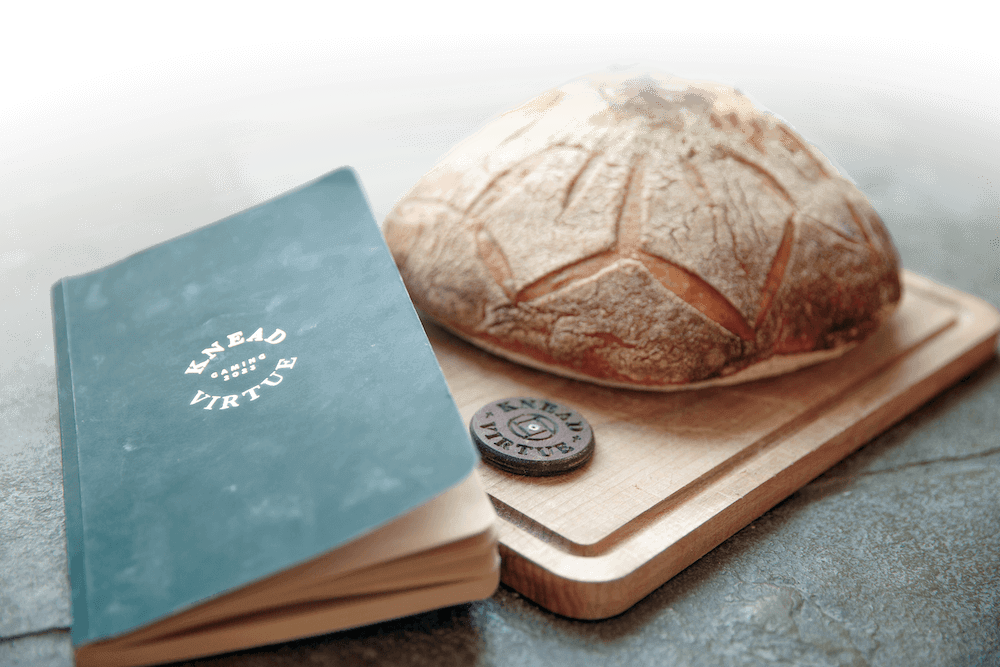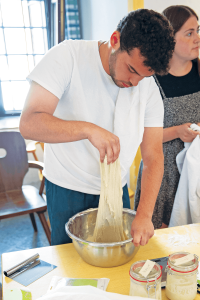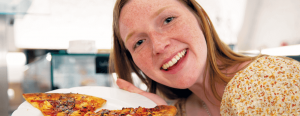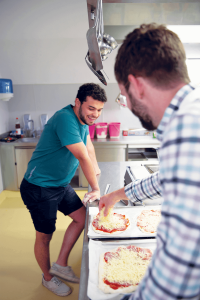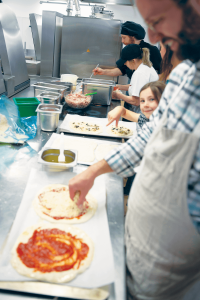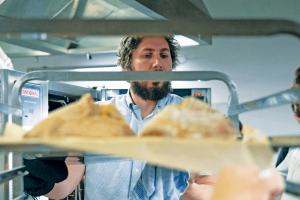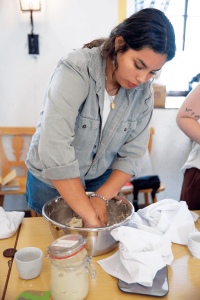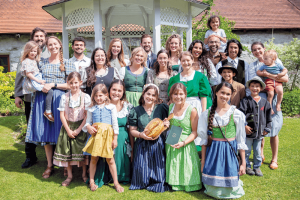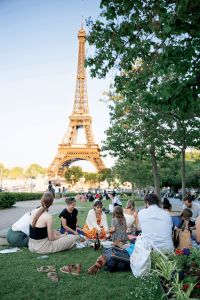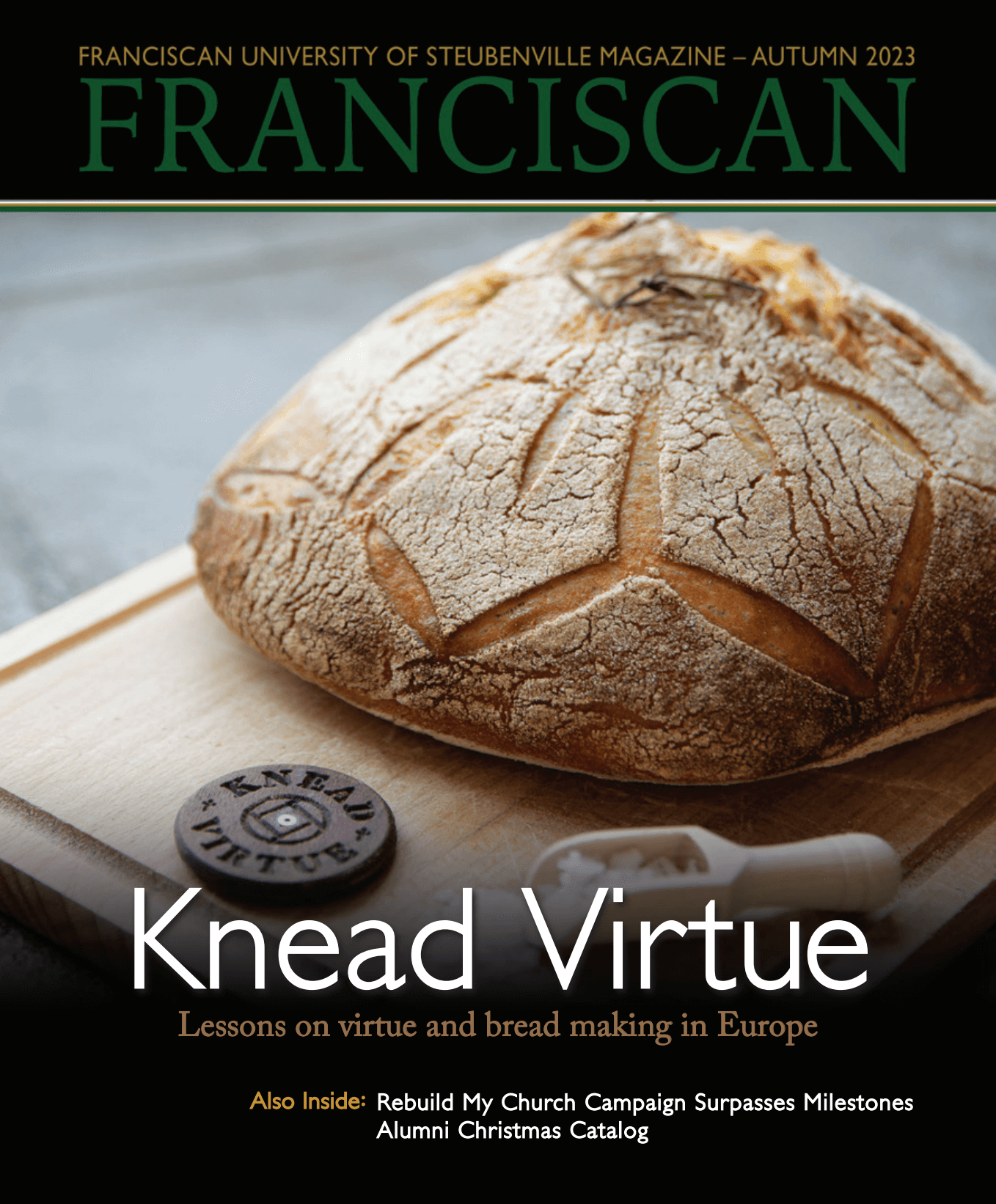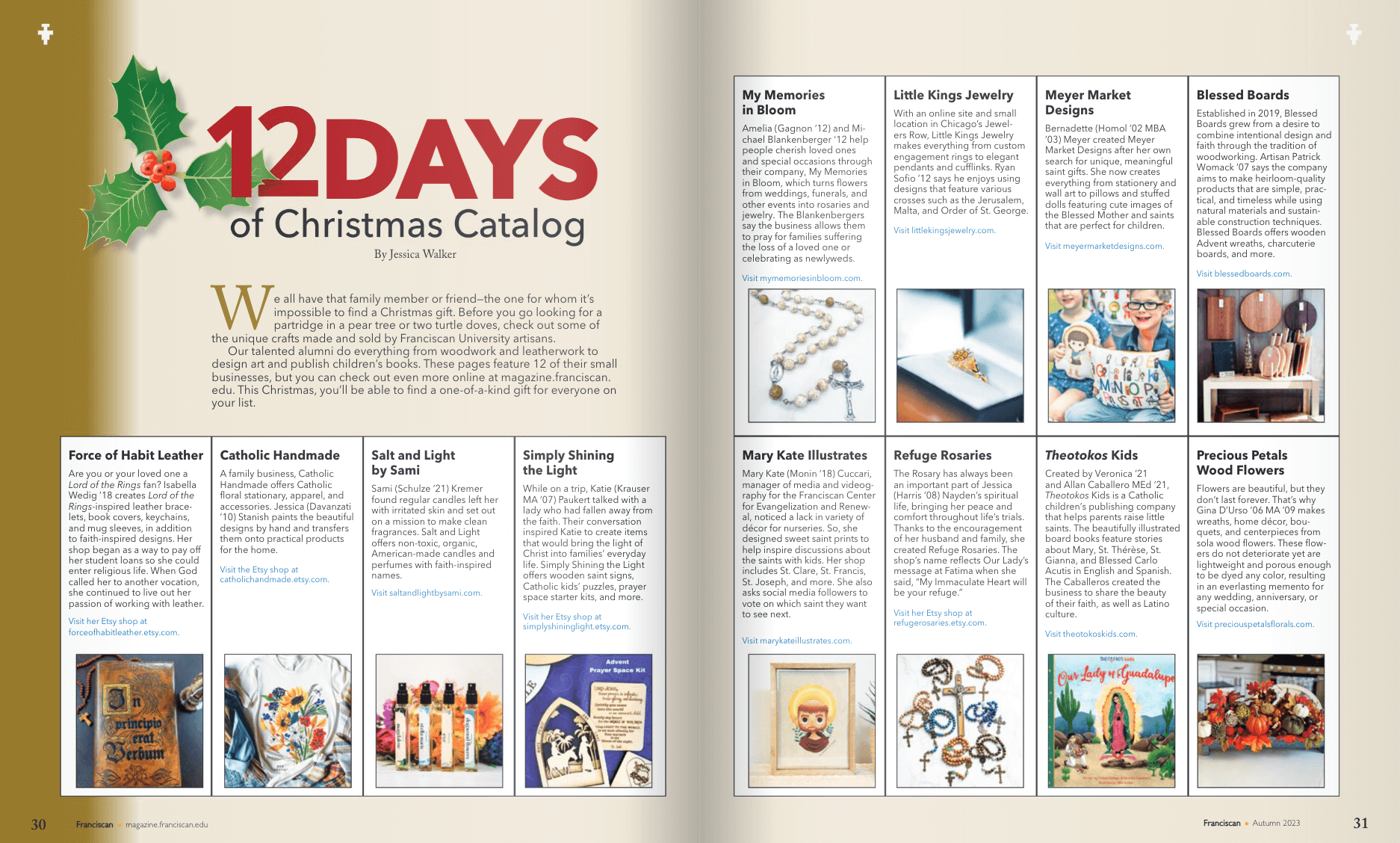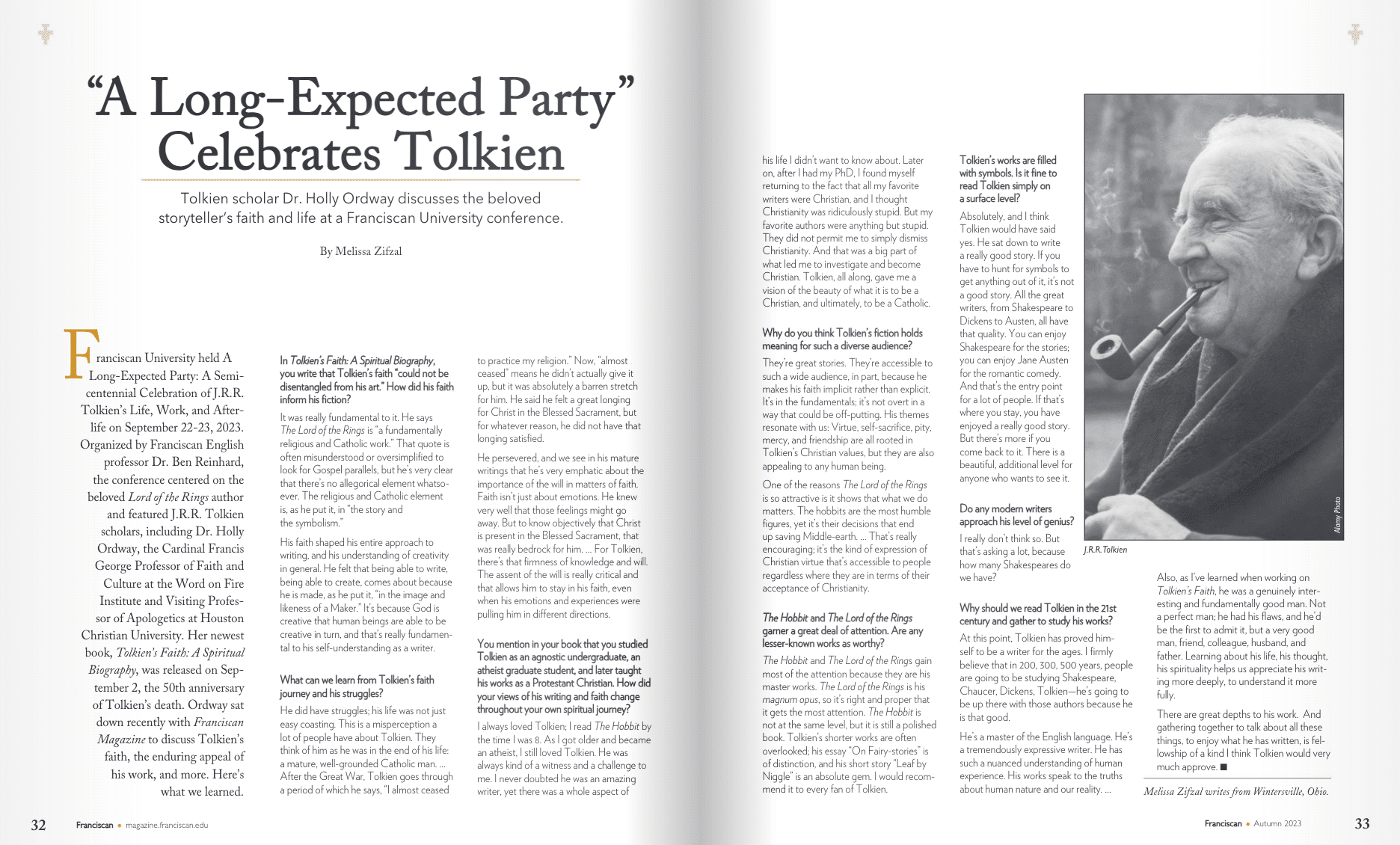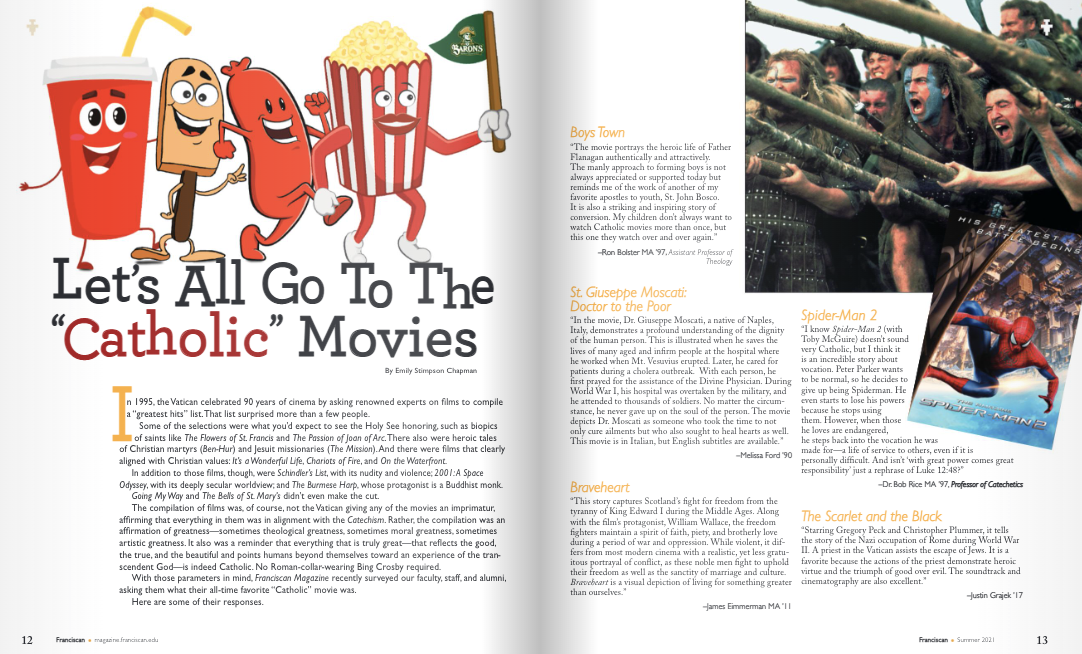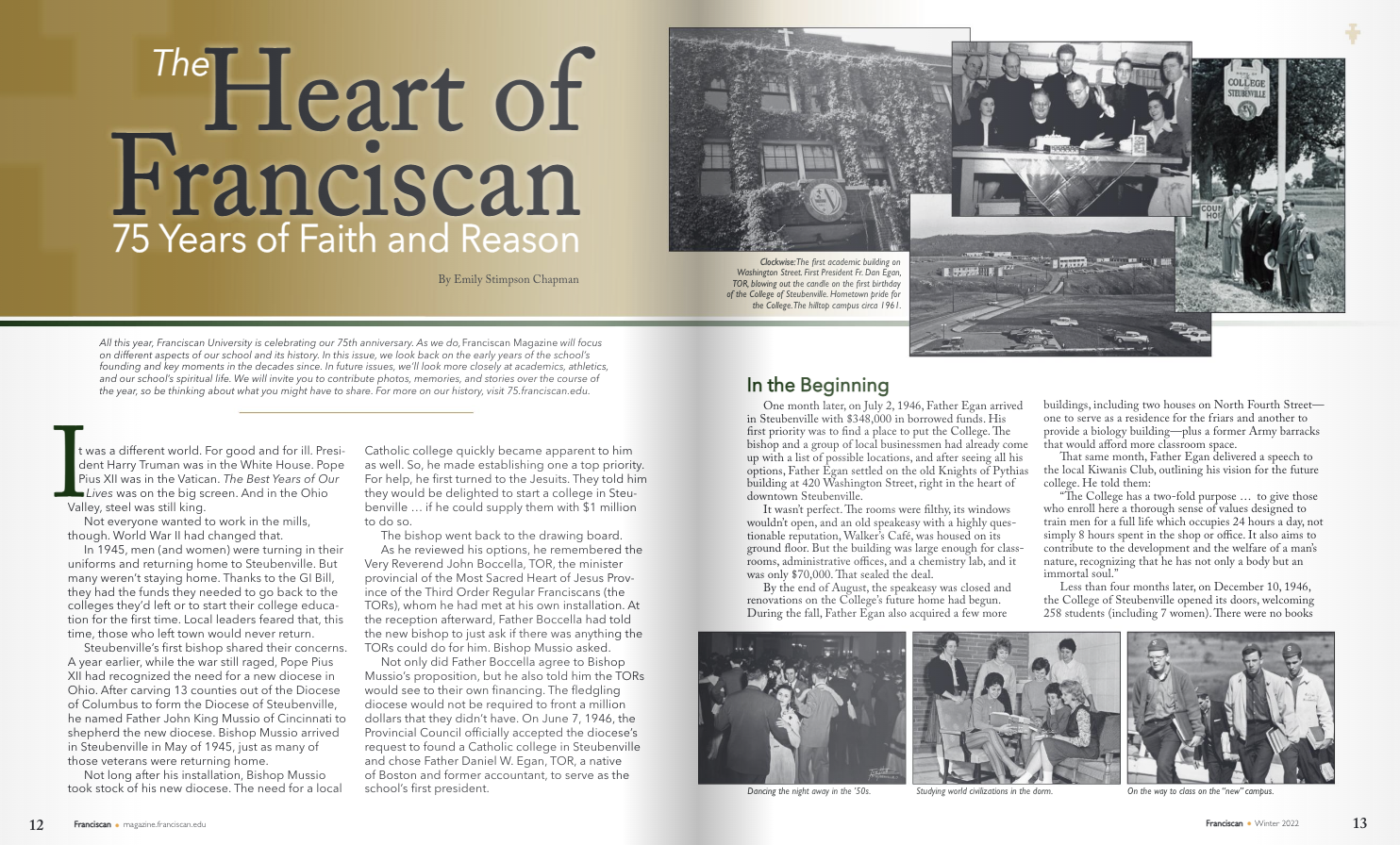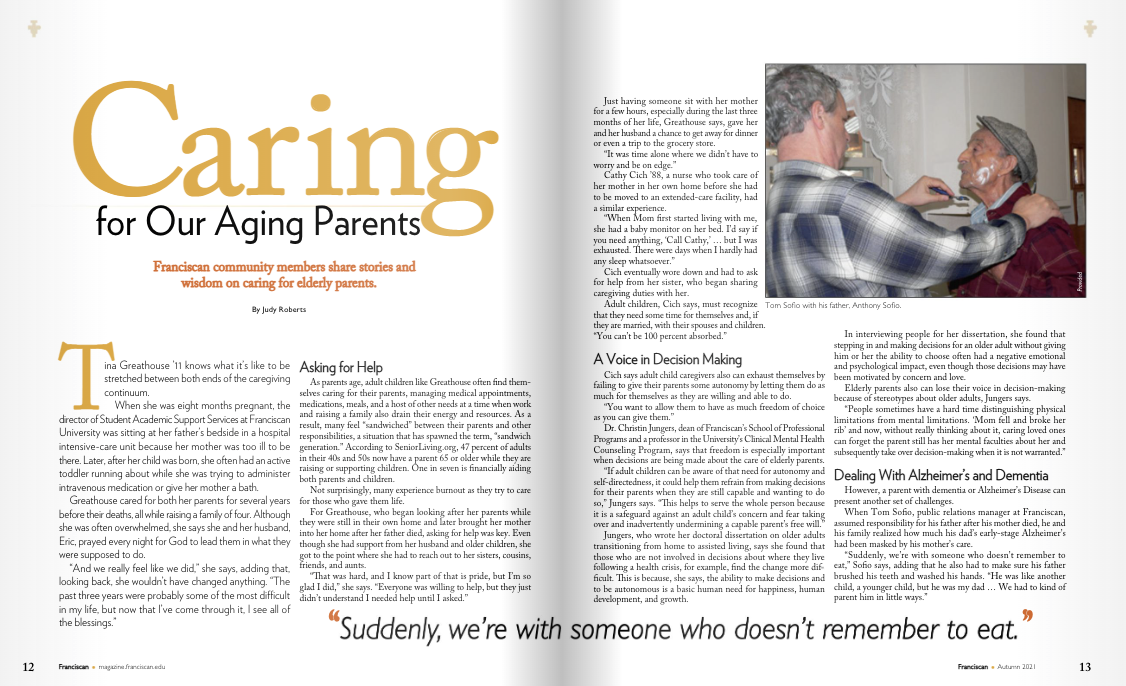Americans in Paris
“Jess, Jess, I have an opening line for you,” Breuninger says. He gives his pitch. “I was stuck in a hot metal tube when the guy behind me bumped into me with his stroller.”
We’re waiting on the crowded jet bridge for our Ryanair flight from Vienna to Beauvais-Tillé Airport. Breuninger keeps his hands firmly on his stroller. This is probably the third opening line he’s suggested for this magazine story. It won’t make the cut, but it does make me laugh.
One bumpy flight, two long bus rides, and three metro stations later, we set down our suitcases in Paris. Gone are the tree-covered mountains and crisp Alpine air of Gaming. Paris is brimming with people. Commuters push onto metros. Tourists snap photo after photo on Sacré-Coeur’s steps overlooking the city. Crêpiers roll up sweet creations in shop windows. And artisan bakeries wait around every corner.
One morning, we’re circled around a park bench in Square Boucicaut. We pass around loaves bought from nearby bakeries. A four-pound sourdough scored with a cursive “P,” for example, is from the generations-old shop Poilâne. Our park bench is soon littered with ripped chunks of sourdough, wheat, and seeded breads.
“We just tasted bread from really great bakeries in Paris,” Dahm says. He leans on the back of the bench. “What do you guys think?”
Students talk about those they liked and those they didn’t. Before this class, one says, she might have been more in awe of breads labeled with names of Parisian bakeries. But now that she’s made her own sourdough, she’s more critical of each loaf.
Dahm says that’s part of skill development. Progressing from novice to proficiency and, eventually, to mastery requires gaining deeper insight. It also requires finding experts or models to look up to so we can keep growing, keep striving for that next step on the journey.
For instance, anyone can read a book on sourdough. Breuninger says he read one. His first loaves were terrible. Then he watched Franciscan philosophy professor and friend Dr. Alex Plato make his sourdough. Through that example, Breuninger improved his own techniques. The same is true of virtue.
“It’s one thing to read about a saint,” Breuninger notes. “It’s another thing to encounter saints in person and watch them. How do they respond to slights? How do they respond to frustrations? When you watch it, you get something very concrete and tangible.”
“I should never have a doubt that God has things handled.”
Some of those saints are a short walk from our park bench. So, after our bread sampling, we navigate narrow city streets and follow signs for Notre-Dame de la Médaille Miraculeuse, the Chapel of the Miraculous Medal. We slip into the pews during midday Mass. To either side of the altar are the bodies of St. Catherine Labouré and St. Louise de Marillac. Above stands a statue of virtue herself, Our Lady with rays of graces falling from her open hands.
Under Mary’s gaze, the priest raises the Eucharist. Of all the breads in Paris, this is Bread par excellence.
Travel Lessons
The next day, we trade our shady park bench for the sun-drenched lawns of the Jardin du Carrousel. The Louvre and its endless hallways of artistic masterpieces surround the gardens. Sightseeing bicycle tours whiz past on the sandy paths.
We snack on even more loaves from even more local bakeries. We do talk about bread again. But we also talk about the experience overall—what worked, what could be improved, and lessons learned.
For junior Marie Jirgal, enrolling in the bread class itself was a lesson in trust. None of her friends signed up, and she hadn’t traveled alone before. Flying solo to study internationally was one leap of faith that seemed a little too big. But her parents told her, “Don’t not go if it’s fear holding you back.”
So, she made the leap. Was it still nerve-wracking? Yes. Was it still filled with unknowns? Yes. But now?
“I should never have a doubt that God has things handled,” she says. “The class in general helped me reflect so much on how I’ve been growing and how I can continue to grow.”
When asked about her greatest takeaway from the bread class, Marie pauses. Then she answers, thoughtfully.
“Whenever I feel called to do something scary, just do it. God’s always with us.”
I have to agree. I am no world traveler. Saying yes to a trip to Austria may have taken me all of five seconds. Actually boarding a plane to travel somewhere I’ve never been, to write about a class that’s never happened before, with people I do not know—now, that led to a bit of anxiety at Gate B51 in Dulles International Airport.
But I navigated foreign airports and metros. I became a student again, learning how to make decent sourdough and, more importantly, that growing in virtue is possible. I reflected and prayed everywhere from Austrian wildflower fields to centuries-old French churches. And I met people of all ages and personalities who were each, to a person, a welcoming travel companion.
Our professors sum it up best while we lounge outside the Louvre. Travel, they say, forces you to learn about yourself. It shows you just how much you aren’t in control and God is. It pulls you out of your routine and into the present moment. And it’s the present moment, after all, where God works.
So Long, Farewell
Just like that, it’s our last night. Our last night in Paris, and our last night of bread class. The class couldn’t have concluded any other way than it does—with a Parisian picnic in the shadow of the Eiffel Tower.
We celebrate Rebecca completing her bachelor’s degree and sing an off-key “Happy Graduation” to the tune of “Happy Birthday.” She’s crowned with a red beret. A baguette serves as her diploma.
Spread before us in the grass are prosciutto and salami, rose honey and chardonnay mustard, unpronounceable cheeses, and, of course, bread. No class discussion this time. Just an impromptu graduation party, good conversations, and goodbyes as the sky deepens from the faintest lilac to the deepest cobalt.
By 10:00 p.m., the summer sun sinks below the horizon. The Eiffel Tower takes its place, a golden glow spreading from its base to its summit. Another hour passes.
The tower suddenly twinkles as if home to a thousand fireflies. Up and down the Seine River are cheers and applause. That night, Breuninger provides the perfect closing line.
“It’s hard to imagine any other class ending like this.”
Want to make your own bread? Check out bread recipes from Franciscan alumni here.
Plans for another bread making and virtue class are in the works for summer 2024. Alumni and friends are welcome to participate. For more information, contact Dr. Brandon Dahm at [email protected].



